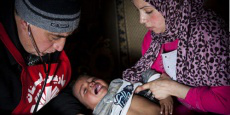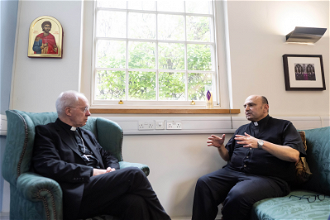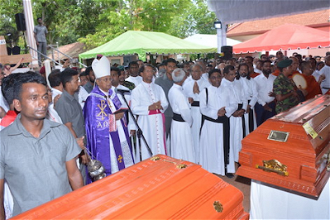CAFOD Q & A on Syria crisis

image: Caritas Lebanon
What has happened?
After 21 months, the conflict in Syria has spread across the country. Fighting between government forces and armed opposition groups continues to escalate, with both sides increasingly making use of heavy weaponry in populated areas. An estimated four million people have been affected by the fighting, either directly or indirectly. At least three million have been driven from their homes, including more than 450,000 registered refugees who have fled into neighbouring countries. The UN estimates that 60,000 people have been killed in the conflict.
The situation has deteriorated since June 2012. With anti-government armed groups taking control of areas in the northern and central provinces, the country is becoming increasingly fragmented. There have also been reports of ill-treatment of prisoners, sexual assaults and recruitment of child soldiers. As the winter sets in, the situation is expected to worsen.
What are the humanitarian needs?
According to the United Nations, nearly three million Syrians face the prospect of food shortages over the coming months. The war has also disrupted water supplies, healthcare and other basic services, and prevented hundreds of thousands of people from being able to make a living. Refugees arriving in neighbouring countries often require food, blankets, household items and counselling to help them cope with trauma. Because of the fighting, it is difficult to deliver humanitarian aid in many parts of Syria.
Some of the main humanitarian needs include:
Food: Because of blockades, sanctions, a lack of fuel, a recent drought, and large-scale displacement, food prices have soared. Prices are 50% higher in areas where there is fighting than in less affected areas.
Healthcare: Access to health services remains a problem and there are severe shortages of medicines. At least one in four hospitals is closed because of the fighting, and the functioning ones are over-crowded. The lack of safe drinking water and sanitation has increased the risk of water-borne disease.
Shelter and support for people forced from their homes: many people who have been forced from their homes remain in need of adequate shelter and support during the winter. Temperatures will remain low (below 10 degrees Celsius) until the end of January.
Unemployment: The war has left many without the means of making a living. Unemployment has risen from 9% in 2010 to 25% in 2012. Poorer families have been particularly badly affected.
Protection for the most vulnerable: There has been an increase in reported human rights violations, including torture of prisoners, rape and sexual assault. There have also been reports of children being recruited into armed forces.
What are CAFOD and its partners doing?
Over the last few months, we have supported trusted local partners in Syria and Lebanon, who are providing food parcels, blankets, clothes and medical aid. As winter sets in, we are scaling up our work, ensuring that people who have been forced from their homes have blankets, warm shelters and money to pay for essential items. We are also working in Turkey to ensure that vulnerable children in refugee camps are safe. We have so far allocated £90,000 to respond to the crisis.
Who are CAFOD’s partners?
CAFOD is working with local Church partners within Syria, with Caritas Lebanon in Lebanon and with Catholic Relief Services in Turkey.
To make a donation please see: www.cafod.org.uk/Give/Donate-to-Emergencies/Syria-Crisis


















